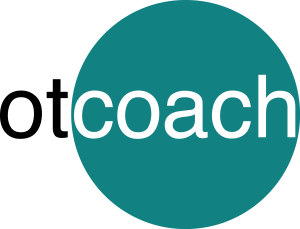We are living in uncertain times right now, but right now I am pondering a different type of uncertainty we grapple with, as OTs who coach. I started to read the Occupational Performance Coaching (OPC) book (mentioned above) and the following phrase jumped out at me:
“Getting comfortable with (this) uncertainty has been a key part of the journey to becoming skilful at OPC”
The uncertainty that Fiona Graham talks about is to do with an internal shift we need to take when endeavouring to coach. These include things like:
- What kind of goals might people come up with if I just ask them to name what is most important to them (rather than usual, assumed or prescribed OT goals)
- What if their goal is not in my scope of practice?
- If I ask my client questions like “what do you think might work?”, they might think I don’t know and doubt my competence
These thoughts might worry us at many levels. However, if we are to be truly client-centred and truly embrace a coaching philosophy, believing that clients are the agents of change in their life and have the answers they need etc., then we really need to tackle these concerns.
As OT’s we are proud of our professional status and as such, we are expected to know and provide the answers that our clients seek. The power of being an expert in most traditional, professional relationships sits with the professional e.g. law, medicine etc. In terms of health-related professionals, the culture is changing in some ways, but this is so variable and many people still expect/want to be given “the” answer, a solution and advice. Of course, in the case of a dodgy gall bladder or hip that needs replacing, the answers and solutions are reasonably clear. But in the case of our profession, one that deals with diverse individuals with diverse lives and diverse desires/habits/dreams etc, there isn’t a bog-standard answer.
It is daunting asking people “what’s most important to you?” as a route to goal setting or exploring priorities, but it is such a powerful way of getting to know someone more deeply and develop trust. It also helps people connect with/remember who they are as a person. It is way more than goal setting and gives people a chance to be seen more fully. And of course, this type of question isn’t just asked in isolation and left dangling – as coaches we help people explore it more fully and reflect on how their life reflects what they value and where it doesn’t.
To ask powerful, curious questions rather than those on an assessment form, requires us to let go of control and that is scary. We must trust that what we “do” when we are with our clients, provides value, has meaning and importantly, has impact. Coming away with a neatly filled in form with information, completed tick boxes and measurements may make us feel quite chuffed as an OT or meet our service quality standards, but has it helped our client? It may make us feel more competent and organised, but that’s about our needs, not necessarily our clients.
The question of competence and how it relates to our ability to provide our client with answers is tricky, isn’t it?
- Do we feel comfortable with asking our client what they think the answers/solutions are?
- Are we OK sitting with them in uncertainty, discomfort or silence while they think?
- Are we able to reword our questions as needed?
- Are we OK with explaining why we are asking e.g. “Everyone has different opinions and solutions. We usually know what we believe will work or won’t work, so it’s important to explore your thoughts and ideas first”.
One way through this is to use the Elicit-Provide-Elicit technique. First you explore the clients believes, ideas etc about a particular issue (Elicit). You then provide some information/ research/ knowledge/ideas relevant to the issue (Provide). Then you find out what the client thinks of that information/idea and how it might support or change their ideas (Elicit). (BTW you can find more about this in our online course).
Embracing uncertainty in ourselves and the process is vital to coaching and I think it is the place where most learning, growth and creative ideas occur. When asked regular questions, we often give our usual “same old” answers first. If we are taken to a place of uncertainty, we allow different things to occur and different insights to emerge. As an OT who is using coaching, we need to recognise when we feel discomfort about this uncertainty and check out what it is about (reflective writing is a great way of doing this as not many supervision sessions have enough time to examine this closely). If we are feeling insecure as an OT, this can often play into the “Impostor Syndrome” something I know that many OTs suffer from. “Am I good enough?” “Will they find me out?” “I’m not what they think I am” are frequent voices of the Impostor Syndrome and can make us grapple for greater control and security in our role. But again, perhaps this is just helping us feel better about ourselves.
Can we quieten our Impostor Syndrome enough to convince them the value and strength of embracing uncertainty, not knowing answers and evoking resourcefulness in others? I invite you to make friends with your Impostor Syndrome and have a play with uncertainty 😊
Enjoy x


